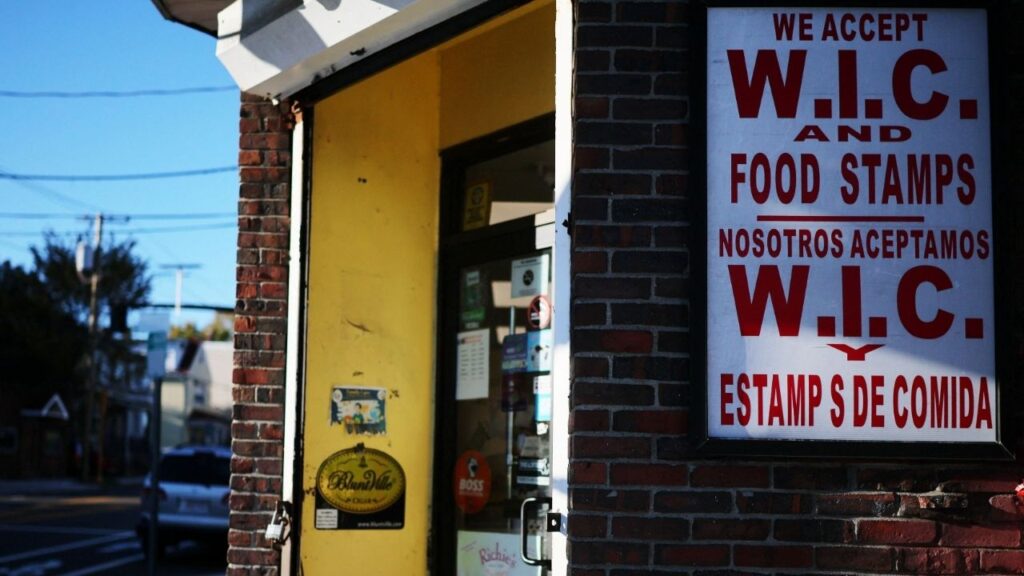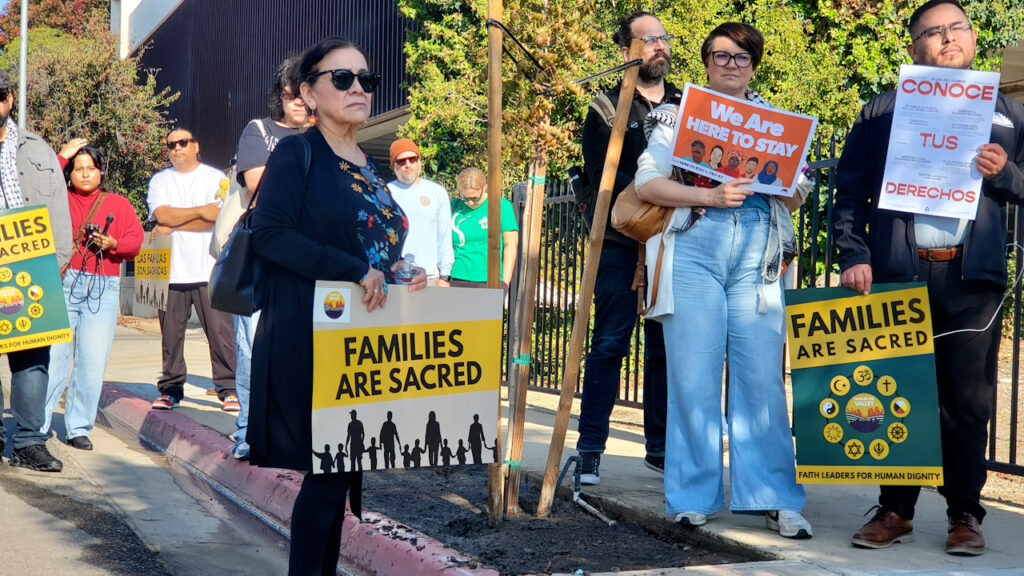Share
|
Getting your Trinity Audio player ready...
|
If California wants to curb poverty, its local governments must become richer.

Joe Mathews
Opinion
That’s one lesson from Stockton’s recent history, as recounted by Stanford Law School professor Michelle Wilde Anderson in her Zócalo Book Prize-winning book, The Fight to Save the Town. Anderson carefully connects the dots between the poverty of people and the poverty of local governments.
Anderson shows the human impacts of deep, decades-long declines in federal and state support for local governments. Between 1979 and 2016, she notes, federal funding to neighborhood development decreased 80 percent. Local governments responded by taking on debt, reducing services, selling land, and raising taxes and fees.
“When local governments are populated mostly by low-income people, there is typically much less money for public services,” Anderson writes. “Weak, broke local governments make it harder for residents to lead decent lives on low incomes or get their families out of poverty. Entire towns become poverty traps.”
One poverty trap is Stockton, pop. 322,000, which Anderson depicts both before and after its 2012 bankruptcy. She shows how segregation, drug trafficking, police violence, and long commutes (to Bay Area jobs), have impoverished neighborhoods, and made Stockton a “city of orphans.”

Stockton’s local government wasn’t up to the challenges. Instead of investing in existing residents, the city subsidized real estate developers in pursuit of new developments that were supposed to attract new residents, tourists, and tax revenues. The Great Recession exposed the folly of these projects, which were often financed, as well as the city’s unsustainable retiree benefit promises to its employees. The results? Layoffs, huge program cuts, and bankruptcy.
Anderson’s book is deeply interested in how community groups, nonprofits, and young officials, led by city councilmember-turned-mayor Michael Tubbs, responded after the bankruptcy. The story she tells is at once encouraging — people and officials made progress in the most difficult of circumstances — and also sobering, because the progress was so tenuous.
Here Is What Worked in Stockton
What worked best were intense, multifaceted efforts to empower residents to solve problems in South Stockton neighborhoods after decades of stigma and disinvestment.
Working together, local officials, nonprofits, and community groups listened to residents and pursued their priorities. This work, mostly by people involved in the REINVENT South Stockton Coalition, started with cleaning up and reclaiming public spaces—first shoring up a park, then shuttering an open-air drug market near a liquor store. Community members opened a clinic that offered mental health resources. And Tubbs and other allies led the way in taking a series of small and large steps focused on treating and reducing the trauma local residents felt.
Poor cities, the scholar concludes, often cut everything except emergency services and public safety, leaving them without the fundamental ingredients that fight poverty: mental health resources, a sense of personal safety, access to living-wage jobs, and secure housing. “Our theory of change,” one REINVENT leader tells Anderson, “is investing in people. We have to shift the language from people’s problems to their assets.”
South Stockton, and the city as a whole, saw significant gains from this work, though it’s far from clear if the progress can be sustained. Tubbs and his allies lost their re-election bids in 2020. The pandemic undermined local systems and community projects. The founder of one important group, Fathers & Families, was arrested, undermining trauma recovery work.
Anderson is clear-eyed about the need to change the very structure and organization of local government. One of her suggestions for places like Stockton is “changing jurisdictions,” which could mean moving around municipal lines or combining cities into regional units. She also argues that we need new ways of thinking and talking about troubled cities—not as “hellholes” that are “dying” but as places that, with the right resources and new structures for residents, can make poor residents wealthier.
Brown, Newsom Strip Cities of the Power to Solve Their Own Problems
In California, I’d go even further than Anderson and suggests that empowering cities requires restructuring the state itself. California, since the passage of Prop 13 in 1978, has become heavily centralized, with tax policies and resource allocations for localities mostly decided at the state level. Returning power to local governments would require so many different changes to existing policies and budgeting that the best path forward would be a new constitution.
Our last two governors, Jerry Brown and Gavin Newsom, have both championed local government and fighting poverty, at least rhetorically. Meanwhile, both men centralized more power in their offices, and eschewed constitutional reform. Fighting poverty in this state requires politicians at the state level to do the very opposite—and place more resources and power in the hands of people, their communities, and their local governments.
About the Author
Joe Mathews writes the Connecting California column for Zócalo Public Square, which hosts Michelle Wilde Anderson at a free, public event June 15 at 7:00 p.m., both online and in-person in Los Angeles.
Make Your Voice Heard
GV Wire encourages vigorous debate from people and organizations on local, state, and national issues. Submit your op-ed to rreed@gvwire.com for consideration.



















